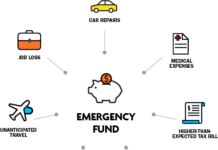The Finite Difference Methods are one of the most important parts of Quant Analysts that are required for solving the Black-Scholes equation as well as the quantitative models. The finite difference is also used for discretizing as well as for approximating the derivatives for a smooth PDE that is also known as the Partial Difference Equation, for example, the Black-Scholes Equation. Daniel Duffy and Paul Wilmott are one of the most well-known quantitative finance professionals who have successfully applied the FDM/PDE approach for solving the daily financial problems of engineering. It is hard for a newbie to understand quantitative analyst easily. So, to help them, we have listed out some of the essential finite difference books that will help the aspirant or practicing quantitative analysts to have a better knowledge of the subject.
1. Finite Difference Methods in Financial Engineering: A Partial Differential Equation Approach by Daniel J. Duffy
Out of the two theoretical books written by Daniel J. Duffy, the Finite Difference Methods in Financial Engineering: A Partial Differential Equation Approach is considered as one of the best.
There has been a vivid theoretical discussion on the PDE, also known as Partial Differential Equation in the book.
The books further explain the finite difference method in details followed by the application of FDM on the one-factor of the Black-Scholes problems.
The FDM is later extended to the multi-factor models and the multi-dimensional models.
Before the section of the implementation of C++, there is a thorough discussion on the free and moving boundary.
The book is one of the best choices for anyone who is looking forward to learning Financial Instrument Pricing Using C++ easily.
The book covers all the essential theoretical points of PDE and FDM. Moreover, the book is more of a practical implementation of C++ or numerical analysis rather than just text.
2. Pricing Financial Instruments: The Finite Difference Method – Domingo Tavella, Curt Randall by Curt Randall and Domingo Tavella

If you are looking for a book that will help you to understand finite difference method from the start to the end, then the Pricing Financial Instruments: The Finite Difference Method – Domingo Tavella, Curt Randall is the perfect choice of book for you.
The book starts with a vivid theory on the stochastic differential equations along with analytical examples on the pricing of the stochastic differential equations followed by a vivid discussion on the approach of Feynmann-Kac.
After the above two, the books eventually approaches to a vivid discussion on Finite Difference Methods along with the stability analysis.
After the Finite Difference Methods comes the inadequate system of the linear equation solving techniques. There has been a special chapter included in the book which is about the jump-diffusion and performance models.
Though the book has an older text that the other FDM books, but it is a useful book for understanding as well as for practicing quantum analysis.
3. Numerical Solution of Partial Differential Equations: Finite Difference Methods by G. D. Smith
Unlike the books by Blackledge, Evans, and Yardley, the book is an in-depth theoretical approach that follows an old style format. The book covers hyperbolic, parabolic and the elliptic topics thoroughly.
The most essential part of the quantitative analyst is the parabolic PDE on which there is a thorough discussion in this book.
An extensive discussion has been carried out on the numeric stability of the methods.
The Lax-Wenderoff method has been used for explaining the hyperbolic PDE. There is also a thorough discussion on the elliptic equations for explaining about the iterative matrix methods.
4. Numerical Methods for Partial Differential Equations by G. Evans, J. Blackledge, P. Yardley

The Numerical Methods for Partial Differential Equations is written in a mathematical tone unlike the other books in the list.
This book belongs to the series of the Springer Undergraduate Mathematics. At the beginning of the book, you will find preliminary mathematics on matrices.
The book further discusses basic solution methods and hyperbolic equations.
5. Financial Instrument Pricing Using C++ – Daniel J. Duffy
The basic of the book is on the practical implementation of the C++ along with the PDE models. It is one of the most comprehensive theories and practices.
In the first chapter of the book, you will find a thorough review of the C++ STL followed by financial engineering.
If you are looking forward to understanding and applying the PDE methods for a daily basis, these books will help you to get through it.












